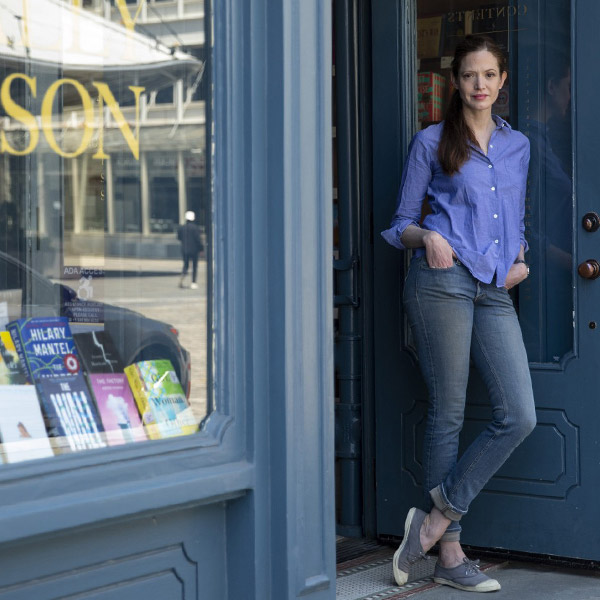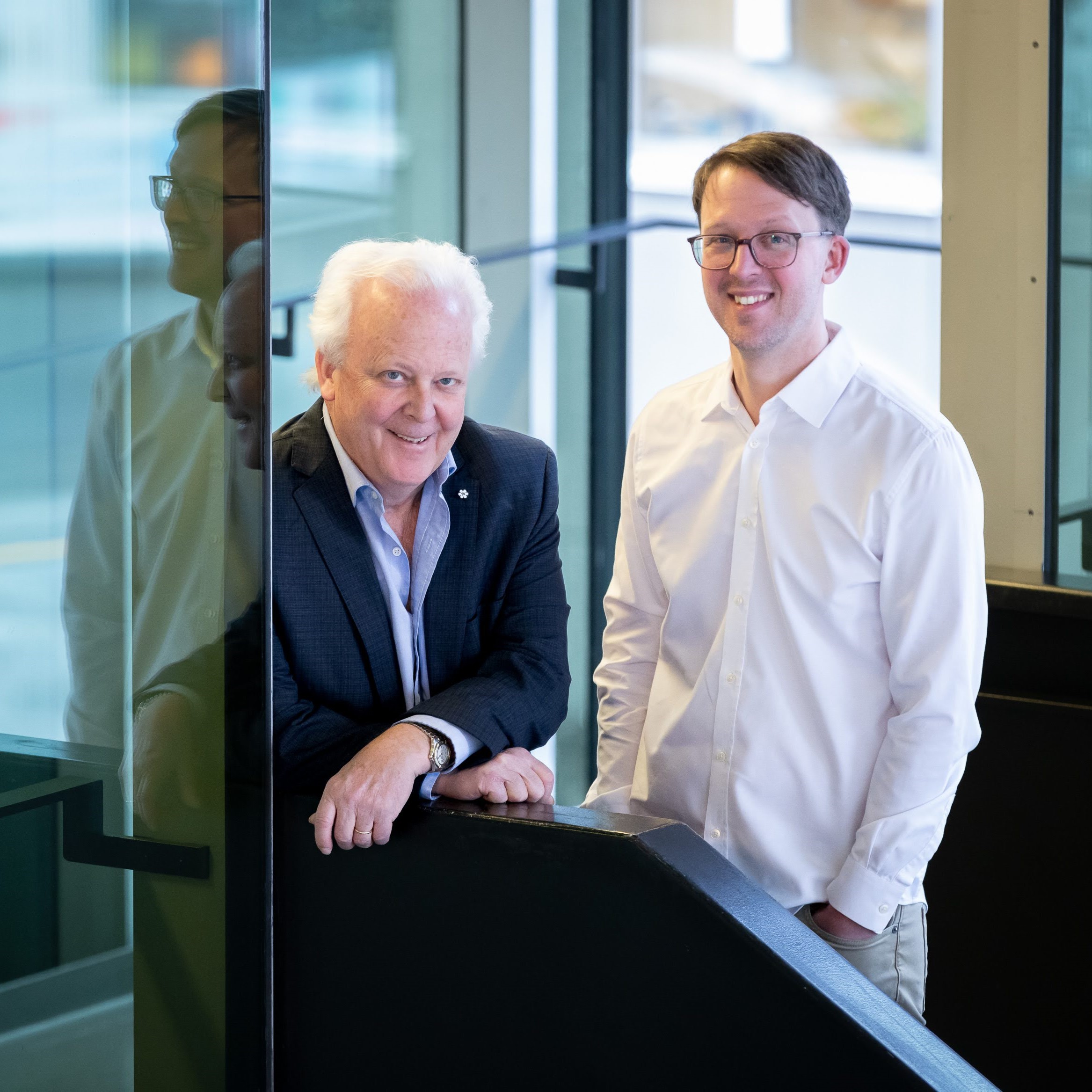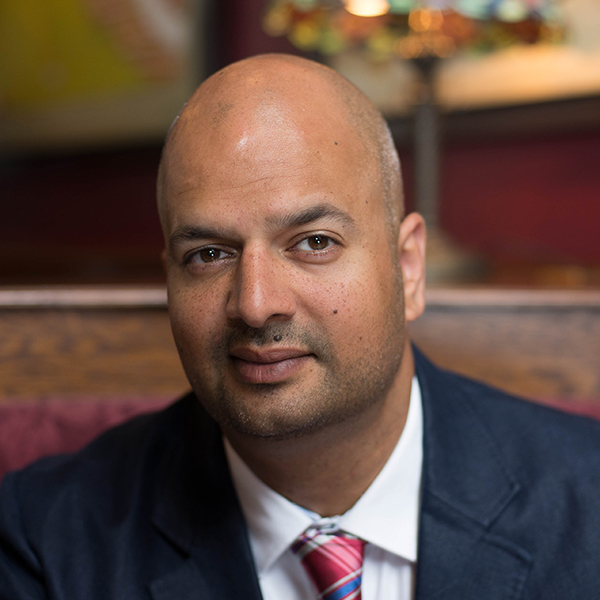When Canadaland made its debut in 2013, other journalists paid close attention to the new podcast. It was, after all, their industry that was being put under the microscope in each episode, as Canadaland creator Jesse Brown, BA’00, and his collaborators looked at questionable reporting practices, possible conflicts of interest, and behind-the-scenes controversies.
As Canadaland has broadened its scope in recent years and created additional shows (scrutinizing the media is still a central part of Canadaland, particularly on its Short Cuts podcast), the Canadian journalistic community continues to pay close attention, but for a very different reason.
Canadaland seems to have figured out how to do something that most of the biggest players in the country’s media landscape have struggled to achieve for several years. Canadaland is making money.
Maybe not a fortune – “We’re really just trying to make this work on a shoestring,” says Brown – but enough to stay in the black and enough to be able to offer regular raises to staffers.
“Apple is now in the business of paid podcasts,” notes Brown, “and Spotify is getting in the business of premium subscriber paid podcasting. We were in that business seven years ago. A tiny Canadian company was pioneering an entirely new model for news and for podcasts. And it’s only grown every year.”
That wasn’t what Brown envisaged when he launched Canadaland.
“The whole thing is a total surprise,” says Brown. “I mean, it’s a cliché to say that it’s beyond my dreams, but I started Canadaland the same way people start podcasts today or a journalist might start a Substack [newsletter]. It was just like my little corner or a platform. And I did have dreams for it; those dreams were, ‘Wow, wouldn’t it be great if I could get paid to do this? Imagine if this became one of my gigs as a freelance journalist?’ Everything that’s followed has just been dealing with that surprising success, and trying to meet the opportunity and be equal to it.”
Canadaland shows are now downloaded more than 100,000 times each week and a growing number of the podcast network’s listeners are willing to pay for those shows – even though they don’t have to.
“We’re asking people to pay for content that they can get anyhow,” says Brown. “Most people who do paid podcasting say, ‘Okay, the Monday show was free, but the Thursday show where I [have] the really good guests, that one is for subscribers only.’ We don’t do that.
“And I’ve had people tell me that if we did put [our] content behind a paywall, they’ll stop supporting us. So, it’s really interesting – they’re not paying to get something that nobody else can get, they’re paying so that 10 or 100 other people can get it for free.”
Canadaland recently picked up a gold medal from the Digital Publishing Awards for Best Arts/Culture Podcast for Cool Mules, the true-life tale of a former Vice editor’s ill-fated foray into drug smuggling – and the hapless young journalists and interns that he dragged into the doomed scheme (Brown was the show’s producer and co-writer).
The podcast network also earned honourable mentions for general excellence, for its flagship Canadaland podcast, and for its coverage of WE Charity.
Brown and his Canadaland colleagues have published several reports that raised different questions about WE Charity and its operations, and Canadaland played a prominent role in covering the controversy surrounding the awarding of a lucrative government contract to WE Charity – a controversy fuelled, in part, by the charity’s ties to former finance minister Bill Morneau and its financial dealings with members of Prime Minister Justin Trudeau’s family. Brown even testified before a House of Commons committee that examined the government’s dealings with WE Charity.
Brown says Canadaland listeners can expect to hear more about WE Charity soon. “We feel that the story of WE Charity hasn’t been properly told yet.” A podcast series that delves deeper will make its debut this summer.
Another Canadaland show, Thunder Bay, hosted by Anishinaabe writer and podcaster Ryan McMahon, explores anti-Indigenous racism and hate crimes in the Ontario city. When it debuted in 2018, it made the “best podcasts of the year” lists of several publications, including The Atlantic, The Globe and Mail and New York Magazine. Thunder Bay is being adapted into a documentary TV series that will debut on Crave in the fall.
Thunder Bay isn’t the only Canadaland show that will be making its way to TV screens. Two separate versions of Cool Mules, one scripted, the other unscripted, are currently being developed, and Canadaland has struck up a partnership with Storied Media Group (SMG), which has helped other clients develop their intellectual properties into shows for Netflix, Amazon Prime, and HBO.
“What excites us about Canadaland is their unique, often offbeat way of telling compelling, character-driven stories,” SMG head Todd Hoffman told Variety.
“One of the foundational ideas of Canadaland is that we’ve tricked ourselves into thinking this was a boring country and that that’s a really good thing,” says Brown. “But it’s not boring because it’s actually kind of a [screwed] up country! I think we see a lot of high drama in a lot of Canadian stories.
“Thunder Bay has as many listeners outside of Canada as within. And people look to our stories and say, ‘Oh my god! I thought Canada was such a nice, polite, boring place. Who knew that this was happening there.’ A lot of the interest we’re getting in adapting our stuff to television and film isn’t coming from Canada. It is coming from Los Angeles.”
What makes a podcast or a news story a good fit for Canadaland?
“What we ask is, ‘If we don’t cover this, will anybody else cover it?’ And if the answer is yes, we’ll pass,” says Brown. “Sometimes it’s [something that] is going to ruffle feathers, so it requires a fierce independence; sometimes it’s just an issue that has gone overlooked and we’re trying to fill in the gaps.
“If it involves a voice that people haven’t heard and should hear, we’re interested. I’m still interested in being challenged, and I’m still interested in being surprised – more than I’m interested in confirming the things I already believe. So, there’s room here for contrary thoughts.”
And on the subject of contrariness, there is no question that Brown’s own persona looms large at Canadaland, particularly on the shows he hosts himself.
He can be cutting and sardonic (if you are a fan of Randy Bachman’s Vinyl Tap on CBC Radio, you might want to skip a recent Short Cuts episode) and he certainly isn’t conflict-averse (he recently had testy online exchanges with Globe and Mail columnist Elizabeth Renzetti and Chatelaine executive editor Denise Balkissoon over things he tweeted).
When Canada Council president Jesse Wente was a guest on the Canadaland podcast last September, he gently chided the host, especially about his tweets. “I do worry about you… I worry that the cynicism can be overwhelming.” “It’ll help if you just view [the tweets] as performance art,” Brown responded.
Each episode of Canadaland and Shorts Cuts includes a statement from one of Canadaland’s subscribers about why they support the podcast network. “I respect the fact that Jesse is no one’s darling,” said a Trent University student named Katie. “This country is sorely lacking in good media criticism and Jesse Brown, as annoying as he can be, is probably the only guy doing it adequately,” declared Arsh from Surrey, B.C. (Brown seems comfortable with having these testimonials include a playful jab at him – which they frequently do.)
When Brown launched Canadaland, he says the country’s most powerful media organizations didn’t have to contend with much scrutiny.
“It’s kind of shocking to me how dramatically things have changed,” he says. “When we started, there was this … code of silence in the industry. Those at the bottom of the food chain didn’t dare criticize the powerful people at the top – both in terms of the content [of the news] and the inequities and the other problems within the industry. It seemed impossible to [address] any of those things without blacklisting yourself.
“And now, there’s a very healthy daily dialogue about what’s wrong [in the industry] and how things could be better. The pendulum has really swung. I think we played a role in that, I think we made it okay for a lot of people to speak up, but I also think the winds were changing anyhow.”
Brown believes this change has been driven by a new generation of young journalists. “I think the thing that [once] prevented young people from speaking up was that they still thought it was possible to have a career [in the media] and they wanted to protect that career. It’s almost like things got so bad that people said, ‘To hell with this! There’s no future for me in this anyhow, so I might as well speak the truth.’ Which is pretty much what compelled me, initially.”
That said, Brown doesn’t have much patience for the notion that media organizations are helplessly facing a financial Armageddon and that there is little they can do about it. And he is certainly no fan of the federal government’s recent media support measures and “what it means for the government to bail out the news and how it alters the relationship between the government and the media, and how it alters the fundamental state of the independent press.
“I do reach a point of frustration with [that discussion]. I feel like we’re having the academic conversation and we skip the practical conversation. It’s like we tried nothing and we’re all out of ideas.” People will pay for their news, he insists, as long as you offer them a quality product that matches their interests. “It’s incredible to me how everyone has reached this conclusion that it’s impossible. ‘No one will pay for news!’ And I always retort and say, ‘Well, have we really offered them that service?’
“There are so many communities where if you wanted good local news coverage and you were willing to pay five dollars a month for it, no one is offering you that. No one is knocking on the door and saying, ‘Hey, I know you’re frustrated with the Postmedia newspaper chain where the news isn’t really local, and they have fewer reporters than ever, and they’re owned by an American hedge fund. I’m going to cover the local legislature, where the mayor is currently giving a no-bid contract to his brother-in-law. Will you give me five bucks a month for that?’
Brown thinks there are a lot of Canadians who would happily pay that five bucks.
“I’m not speaking of a hypothetical here. With Canadaland, we brought a quality service to the market and we asked people to pay for it, and they have. I also see what Tim Bousquet is doing in Halifax [with the Halifax Examiner] —his subscriber base is growing and growing; what Jeremy Klaszus is doing [in Alberta] with The Sprawl. I see specific beats like environmentalism and climate change where The Narwhal and the National Observer are doing quite well.
“I reject the premise that Canadians won’t pay for good news [coverage] – it’s just that the legacy Canadian news industry hasn’t give them that opportunity.”
published in June 2021


